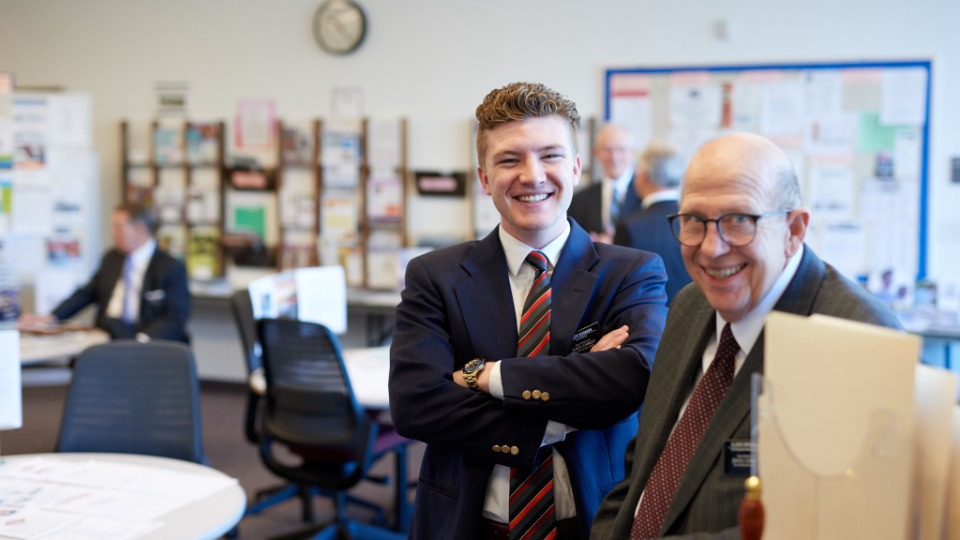
This story appears here courtesy of TheChurchNews.com. It is not for use by other media.
By Mary Richards, Church News
The Church employment services program isn’t rocket science, but it did help one rocket scientist land his dream job.
Joseph Wilson is a master of aerospace, an engineering graduate with skills in propulsion thermal and computer systems. But after he graduated from Arizona State University Aerospace master’s program, he could not get a job.
“I did have skills in rocket science, but what I lacked was the ability to convey my skills efficiently to others,” he said. He got several interviews with prominent companies with no success.
“I did not want to admit that I needed help,” he said, and when it was suggested he try the Church Employment Services website, he reluctantly agreed.
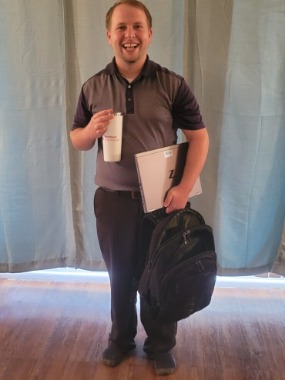
He got a call from one of the program’s missionaries: “Little did I know that I would change my life,” said Wilson.
He began meeting more regularly with the missionaries and joined the Church’s Active Job Search program, or AJS, doing everything required. And within a couple months, Wilson had a new job.
“I have thoroughly enjoyed my job as a rocket scientist down in Tucson, Arizona, sending rockets into space to literally save the world, and it is a fantastic fit for me,” he told the Church News.
Wilson is one of more than 8,000 individuals who attended online job search groups and workshops in 2021, receiving personalized job search coaching from Employment Services.
What Is Church Employment Services
Church Employment Services is online at Employment.ChurchofJesusChrist.org, and in several employment centers physically located throughout the U.S. and Canada. It offers professional help through the Active Job Search program, group meetings and individual sessions, job skills training, “ask an expert,” and webinars. Resources are also available for employers, schools, small businesses, stakes and wards.
The services are for anyone, whether they are a Church member or not. People from Australia, South and Central America, Africa and more have received support remotely.
Interested individuals can send an email to EmploymentServices@ChurchofJesusChrist.org or call 888-818-4484.
Joseph Doria, manager of employment support with Church Welfare and Self-Reliance Services, said the pandemic forced them to close the brick-and-mortar employment centers for a while, which led to the expansion of online services. Now the centers are opening again, but all the virtual and online offerings are continuing. Daily job search groups are running all over the country, where people log in on a daily basis. The Active Job Search groups allow people to meet with other job seekers, facilitated by Employment Services staff.
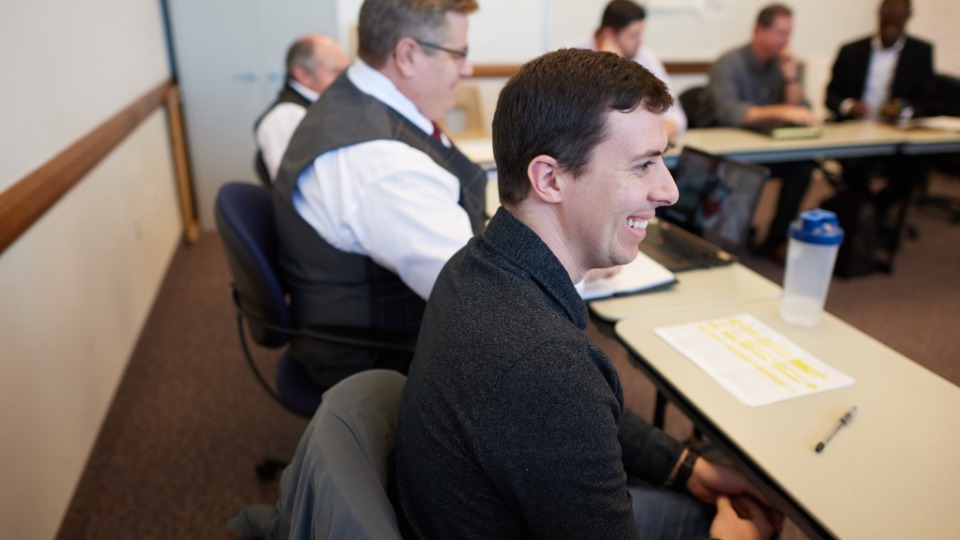
The participants share job leads and resources, and work together on networking, polishing skills or updating resumes and social media profiles.
“People who are looking for work come together and support, help, and strengthen one another, and that has been, I think, one of the best things that has happened,” said Doria. “Because when you’re out of work and you’re unemployed, it can be scary, and it can also be embarrassing and your tendency is to just kind of isolate yourself. So providing a forum where you can connect with other people that are in the similar situation has been really powerful.”
Before the pandemic, all the missionaries served as volunteers inside the employment centers. But now many are serving virtually from their homes, providing coaching over Zoom, or facilitating the online job search groups, or teaching online workshops.
“One of the great stories I think over the past couple of years has been how we’ve provided this really exciting missionary opportunity where senior couples have been able to have an incredible impact on people’s lives without ever leaving their home,” said Doria.
The Employment Services Missionaries
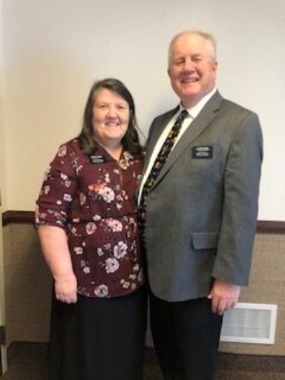
Elder Ralph Crane and Sister Denise Crane serve as Employment Services missionaries in the Houston, Texas, area. The Cranes underwent a certification process, but have continuing education through weekly meetings of their own. They are not retired yet, and serve from home.
When they get a referral, they get to know the person first, then they assess what they can do to help, and finally they put a plan together to move forward.
“One of the things is for them to do a simple ‘me in 30 seconds.’ Tell me about yourself,” said Elder Crane. “We were taught to be humble, and not brag about ourselves. But the scriptures also tell us to count our blessings. You must recognize them and let people know. That’s what’s me in 30 seconds.”
They teach them how to brush up their resumes, use their skills, prepare “power statements” for interviews, and make connections.
“It is satisfying as you start to see them open their scope, their view of what can they do,” said Elder Crane.
Sister Crane said sometimes a whole team helps together with one person, including the ward elders quorum or Relief Society president, the ward employment specialist, the stake self-reliance specialist, and the Employment Services coaches.
“It’s a way of giving people hope, that yes I can do this. We don’t go find jobs for people, we are their coach,” said Sister Crane.
The Cranes have helped people who are not members of the Church as well. Everyone they are working with is on their minds. They pray in the morning about it, they pray at night before bed.
“We are on the Lord’s errand. We follow those promptings. There’s not one person we have worked with over the past six months that we have gone the same direction. The Lord directs which way you are going to go,” said Elder Crane.
Elder Dick Thomas and Sister Sue Thomas serve from their home in the Blackfoot, Idaho, area. They’ve already extended their mission past 18 months.
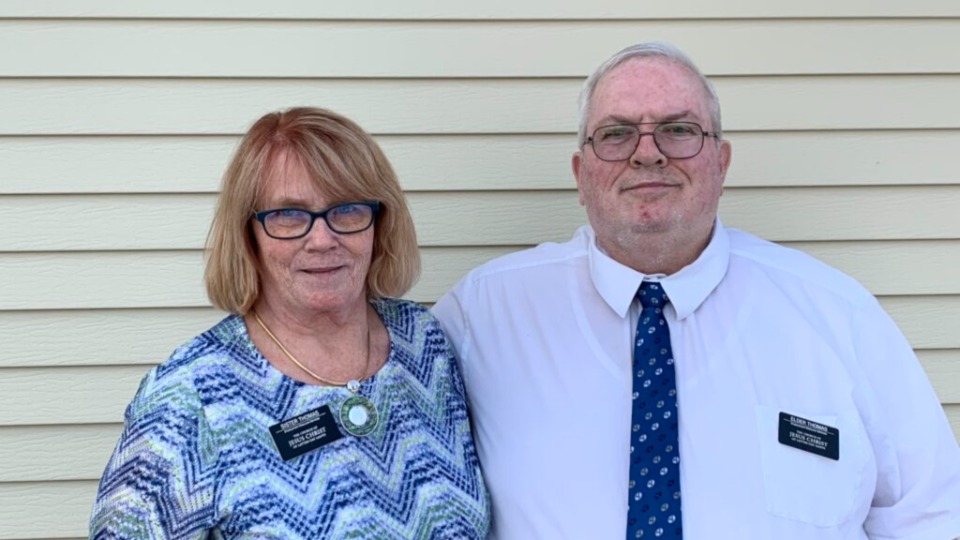
“Our goal is to help them find the job that is right for them,, not just something we want them to do or just any job,” said Sister Thomas. “We just keep working with them until we find them the right job.”
The Thomases are retired teachers. Like the Cranes, they get acquainted with the job seekers first and put a game plan together. Sometimes it takes two weeks, sometimes eight months or longer to help someone find the right job.
“We’ve met a lot of great people and it all begins with ‘How can we help you?’” said Elder Thomas.
Their region also has two Spanish-speaking missionaries, and the Thomases can turn clients over to those missionaries to work with them. They want to meet the needs of anyone who reaches out.
“Just yesterday I had someone ask, ‘Do I have to be a member of your Church to use this service?’ Absolutely not,” said Sister Thomas. “People think they can’t use it, but we need the word out that we serve everyone. Everyone is just as important as anyone else.”
Elder Kerry Geiser and Sister Cathy Geiser have been serving as employment missionaries for a little over a year from their home in Montana. It works perfectly for their situation, because Sister Geiser’s health issues meant she couldn’t be far from her doctors.
Elder Geiser said although they try to help people find job leads, they also teach them job search skills.
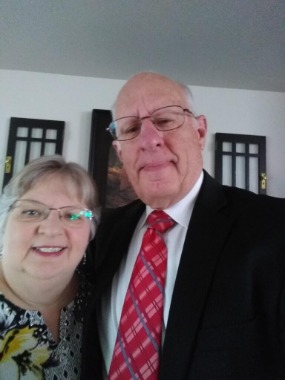
“We teach them networking and making positive statements about themselves and working with people they know,” he said. “Sometimes if they talk to several people they know, it will lead them to a place looking to hire that hasn’t posted a job yet.”
He has coached people who are unemployed, and people who are employed but looking for a new situation or better job.
“It’s rewarding to help people no matter where they are or their situation,” he said. “One of the best rewards that we see working with people, is many of them, not all of them, are in a place where they feel beat up and humbled — they are struggling. Sometimes they don’t need to know our knowledge, but someone to encourage them. A pat on the back, someone to check back with them.”
“Encouragement I think is one of the biggest parts of what we do,” he concluded.
The Personal Approach to Getting a Job
Pinpointing and polishing a power statement was the breakthrough for Wilson in Arizona. It helped him clearly communicate his skills. And for Dustin Ray in Riverton, Utah, networking led him to his new workplace.
Ray had a mutual parting of ways with his employer of many years. He couldn’t remember the last time he had been unemployed and needed to get a new job.
“I had a sister who told me, ‘Dusty, get into the AJS group and do exactly what they say. No matter how painful it is, it works,’” he said.
He joined the Salt Lake group and learned how to do a resume. He practiced and prepared for interviews. He got on LinkedIn and started networking. Every Wednesday he worked with coaches.
“And it addressed some of the reasons why some of us were looking for a job. We were able to address some of those self-limiting issues we were going through,” said Ray.
Someone who used to work for him worked at another company, and spoke to management about him, who created a new position based on Ray’s skills. “Now I work there,” he said. “If it wasn’t for the coaching, and if I had never reached out, I wouldn’t have gotten the job.”
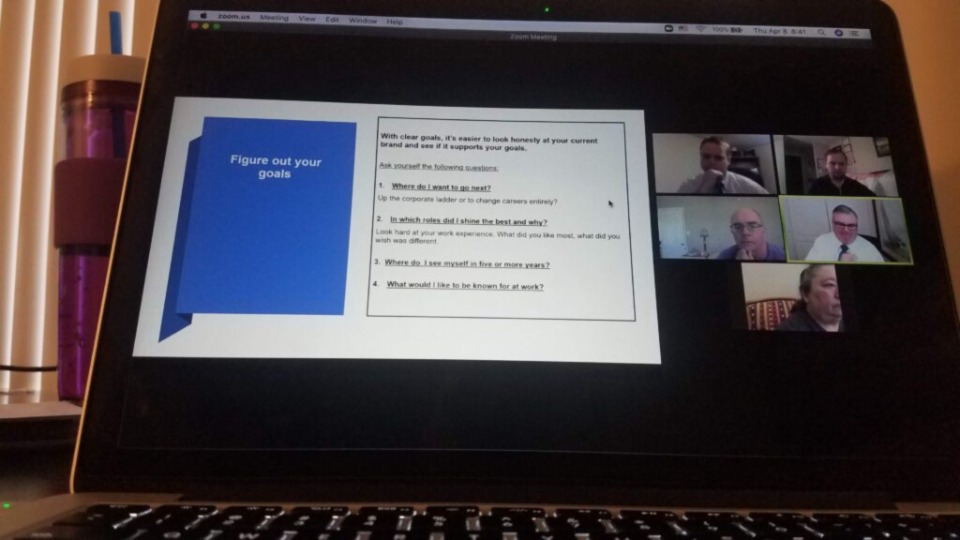
Alen Gibbons is currently working with the east coast group after his job was eliminated in a merger.
He said he immediately was impressed and amazed at the service, quality and professionalism provided by the missionaries and coaches in the Employment Services program. But he knows a lot of the effort is up to him.
“The program is a good one, to the extent that you follow the 15, 10 and 2 — you work every day on 15 resources, 10 contacts, and two face to face or on the phone. That’s a proven method,” said Gibbons. “What is amazing on top of that, is the one on one and specialty skilled professionals that they bring to the table to assist you in that effort.”
Those professionals have decades of experience, said Gibbons, and they are providing it for free. He couldn’t say enough about the skills and talents and tools of the missionaries, coaches and leaders in the program.
And Ray agreed: “It was a blessing and everybody I worked with there are angels. I don’t know how to put it other than that.”
The Spiritual Aspect
Doria said a main purpose of Church Employment Services is to teach self-reliance, and self-reliance is a principle of salvation. Helping someone gain employment and be self-reliant again sets them up to be in a position to serve and bless the lives of others.
When someone is struggling to be self-reliant, like when they are unemployed, it impacts their life, not just temporarily, but also emotionally and spiritually, he said. “It’s very easy to feel alone and forgotten, and so part of the purpose of these programs is to help people to maintain that connection to the Savior even during a time of crisis — especially during a time of crisis.”
Doria said the trial or a challenge of unemployment is not because of spirituality or testimony. These trials can happen to anyone, like a bishop he knew who lost his job at the beginning of the pandemic. This bishop told Doria that the program allowed him every morning to get dressed, put on a tie, have a supportive environment and be a part of something at a time when he was struggling and felt totally alone.
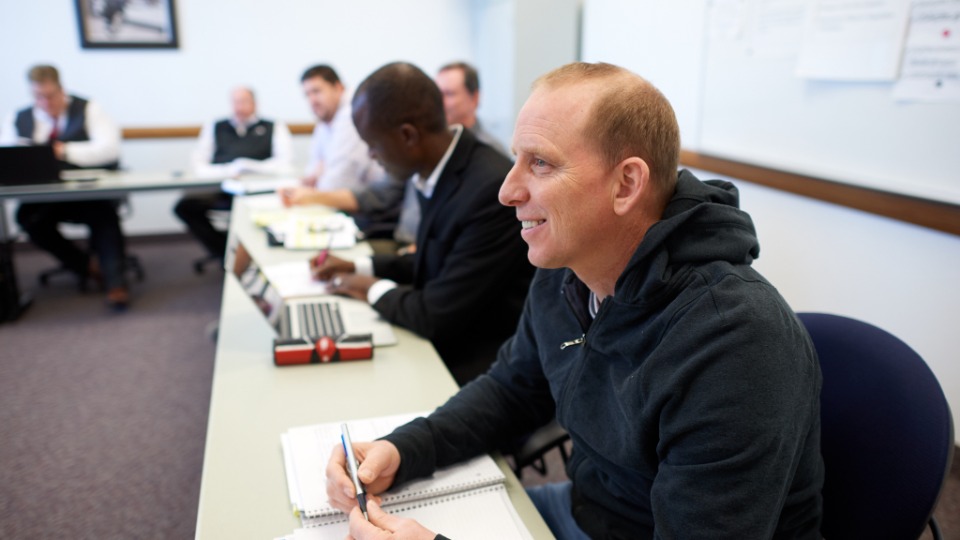
Gibbons said looking for work can drag him down, but he can’t separate the trial of looking for a job from his testimony of how God hears his prayers. The missionaries have provided him with spiritual focus at the same time as the professional help.
“The spiritual support they provide is daily. You know you are in their prayers as well. It’s sweet,” said Gibbons.
Ray knows the Lord was trying to direct him somewhere when he became unemployed. He said he has become a better person as he learns to move past his own self-limits. The missionaries taught him to claim his strengths and be proud of them. The whole experience felt like an answer to prayer.
“It was a pure outright blessing for me and my family, and not just because of the job,” he said.
He would love to serve a mission with Church Employment Services some day, because he sees how it fulfills the mission of the Church.
“I have a lot more clarity about who I am,” said Ray. “The secondary thing I got out of this was a job.”
Copyright 2022 Deseret News Publishing Company